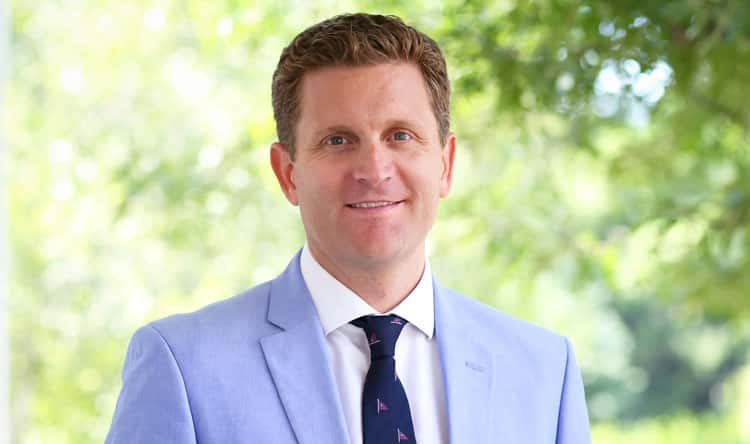

By Rev. Dr. Nathan Hart
James Riley was born in Middletown, Connecticut, in 1777. He grew up farming the land with his family, attending church, and occasionally venturing to the sea where he learned to sail. At the age of 35, he volunteered for the War of 1812. His service was distinguished and he became a captain during that time.
After the war, Captain Riley reentered civilian life as the commander of a merchant ship, Commerce, stationed in Hartford.
In 1815, while sailing near the western coast of Africa, Riley and his crew were shipwrecked. The survivors were eventually captured by traveling Arabs and enslaved before being sold to another slaveowner named Sidi Hamet. Their conditions were horrific. The Americans became so dehydrated that they survived on camel urine for a while, and Riley went from weighing a stocky 240 pounds to less than half that during his captivity.
The story is remarkable as an example of white slaves in Africa during a time when there were over a million black slaves in America. But there’s even more to Riley’s story that makes it remarkable. Captain Riley quickly learned the language of his captors and became well acquainted with Sidi Hamet. He convinced Mr. Hamet to bring them to the city of Mogadore, a trading post in Morocco, with the promise that Riley could summon a Westerner to pay Hamet generously for his release. Riley was able to send a general letter ahead of them to Mogadore, and, amazingly, the letter was picked up by an Englishman named William Willshire. Willshire became deeply interested in the fate of the enslaved Americans and procured the money to ransom Riley and his crew.
Riley later described the experience of meeting Mr. Willshire in Mogadore, saying, “We looked up and beheld our deliverer, who had at that instant turned his eyes upon us.” Willshire embraced Riley and exclaimed, “Welcome to my arms, my dear sir, this is truly a happy moment!” Then, lifting his hands toward the sky, Willshire continued, “I thank thee, great Author of my being, for thy mercy to these my brothers.”
It was a glorious scene of rescue, redemption and freedom. Even Sidi Hamet reportedly was seen crying, as he too was caught up in the emotion of the moment. I believe that the story is so moving because it is an allegory of the greatest story ever told, namely the Christian gospel, wherein Jesus has paid the ransom price—his shed blood on the cross—to redeem us from the enslaving power of sin.
The redeemed Captain Riley returned to America and moved to Washington, D.C., where his saga became a trending story of the day. James Monroe, then Secretary of State, urged Riley to write a book about it. Riley penned An Authentic Narrative of the Loss of the American Brig Commerce, and it became a national bestseller. (You can now find it under its modern title, Sufferings in Africa, from which the quotations above are taken). Riley was so grateful to William Willshire that he named a son after him and talked about his redeemer’s generosity and kindheartedness everywhere he went.
Lest anyone think this story is just a cruel counterexample to all the millions of slaves in America who never experienced such a redemption, keep reading.
When Abraham Lincoln was a young man, he read Captain Riley’s book. Years later, in his 1860 campaign biography, Lincoln cited three books that most influenced his views on slavery: The Bible, John Bunyon’s Pilgrim’s Progress, and James Riley’s Authentic Narrative. It seems that reading the story of white men as slaves helped humanize the issue for Lincoln. Perhaps he came to know the fruit of the gospel so beautifully rendered in the third verse of the Advent hymn O Holy Night, written in 1847 and translated into English 1855:
Truly He taught us to love one another;
His law is love and His gospel is peace.
Chains shall He break for the slave is our brother;
And in His name all oppression shall cease.
Captain Riley’s story is not only an interesting piece of influential history with allegorical connections to the Christian gospel. It is also personal to me. My wife Nancy was named after her grandmother Nancy Lee Riley, a descendant of Captain James Riley. In 2008, when our first child was born, we named him Riley Wilhelm. Riley is now eleven years old and knows the redemption story well, both Captain Riley’s and his own.
Rev. Dr. Nathan Hart is the Senior Pastor at Stanwich Church. Nathan grew up in Holland, Michigan, where he attended Hope College. He later received his Masters from Princeton Theological Seminary and his Doctorate from Gordon-Conwell Theological Seminary. He was serving in New York City before being called to Stanwich in 2011 and was elected as Senior Pastor in 2018.





